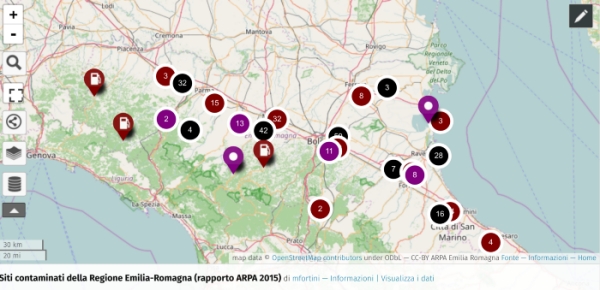Obstacles to Open Data in and out of Public Administrations
Nothing new (sadly), but well said.

Three years ago, during an Italian Open Data Day meeting, Matteo Fortini shared his experiences about Open Data in and outside Public Administrations (PAs)as both a civic hacker and a City Counsellor. These are his main highlights, which I would say remain a valid picture of certain problems in PAs in every country.
Being “inside” the system…
…does not make things easier, it only gives more opportunities.
It is not possible to create a digital PA by decree: the necessary skills are missing, and sometimes they cannot even be created inside, and there is no money nor policies to hire more personnel.
“Digital”, “open data”, “open formats” are empty words, almost a foreign language, perceived as a complication and a waste of time and money, rather than a resource. At the same time, the expertise of current public officials in “deliberations”, and bureaucracy in general have seen as plagues to avoid by outsiders looking for interesting careers.
What happens today is NOT “digitization”. Not meaningful digitization, anyway
Any bureaucratic process should not be digitized as is, step by step. [In order to be modernized] it needs a revision of all its components to [restructure and] save its essence, taking digital opportunities into account. The alternative is to create an “incomprehensible monster of inefficiency”.
Rather than regulations requiring the creation of [distinct] “digital offices”, staffed with whatever existing employees have the remotest connection with “digital”, what is needed is task forces that gradually visit all institutions to guide (and force) change.
Who REALLY owns public data?
In general, PAs do not really own their data, which are closed in archives created and managed by software of their current suppliers, against which PAs have , by contract, very narrow autonomy and room to act, especially when a PA would like changes to data management that would be useful to citizens, but are not explicitly mandated by any law.
Who must really WANT open public data?
It is essential that demand for data that comes from outside. The intention to open one or more datasets will get stuck much more easily in the folds of many more urgent obligations, if there is not someone who has requested their publication for some reason.
For this reason, it is also necessary to spread the culture of open data and in a general sense of the philosophy that underlies it: too often citizen associations, political parties or other “private” entities produce very interesting data with their own research, only “use” them in some press conference and then let them to rot in some forgotten hard disk, and never even think to request data from PAs for their needs.
Compare that last point…
about educating NGOs and society in general to Open Data with what I wrote nine years ago:
Who writes this, why, and how to help
I am Marco Fioretti, tech writer and aspiring polymath doing human-digital research and popularization.
I do it because YOUR civil rights and the quality of YOUR life depend every year more on how software is used AROUND you.
To this end, I have already shared more than a million words on this blog, without any paywall or user tracking, and am sharing the next million through a newsletter, also without any paywall.
The more direct support I get, the more I can continue to inform for free parents, teachers, decision makers, and everybody else who should know more stuff like this. You can support me with paid subscriptions to my newsletter, donations via PayPal (mfioretti@nexaima.net) or LiberaPay, or in any of the other ways listed here.THANKS for your support!